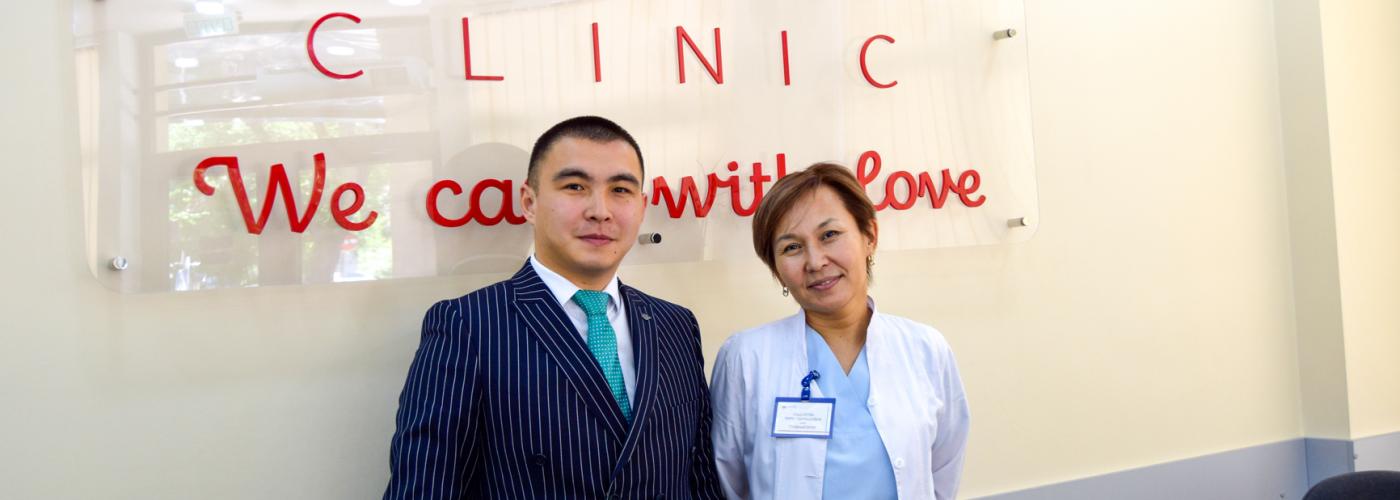Kyrgyzstani Entrepreneur Unlocks Potential of Private Healthcare During Pandemic
Image

In the Kyrgyz Republic, traditional state-owned clinics and hospitals offer outdated equipment, a lack of well-trained doctors, and inconsistent quality. A surge in COVID-19 cases has overwhelmed the government-run health system in the country. Residents struggled to access quality medical services as the country registered more than 67,000 cases this November.
A local entrepreneur, Arman Alibay, knew that private medical care was a growing market and that every year more people were choosing to pay for quality treatment. After researching operations all over the world, Arman decided to open Prime Clinic in Bishkek, the capital of the Kyrgyz Republic. He modeled his clinic after the highly successful Open Clinic in Moscow. With access to Open Clinic managers, Arman gained valuable insights into running a business and established the Prime Clinic based on their best practices. Soon, he saw an opportunity to grow his business, create jobs, and expand the range of quality healthcare services available in the country.
Before the pandemic, Prime Clinic graduated from USAID’s Business Acceleration Program and received support from the USAID Enterprise Competitiveness Project to upgrade to modern medical equipment. The clinic equipped its otolaryngologic (ENT) room with a Tonzillor ultrasound device, an ENT- equipped chair, a negatoscope, a set of laryngoscopes, an audiometer, and an otoscope. Prime Clinic contributed its own funds to purchase an ACT medical laser device for power therapy and surgery.
This modern equipment played an important role in making a correct diagnosis and identifying lung damage caused by COVID-19. In cases with complications, such as ear, nose, throat infections, the equipment ensured quick and efficient patient examination and prescribing of treatment. Additionally, Prime Clinic invested its own funds in oxygen concentrators and pulse oximeters.
“We received USAID support before the pandemic. Today, this medical equipment is helping us in the fight against COVID-19. Who could have thought that an ENT-equipped seat or negatoscope would become some of the most needed things to save people's lives during this challenging period?" - Arman Alibay, Director of the Prime Clinic
Prime Clinic adapted to the new normal. At the onset of the pandemic in March 2020, the clinic introduced telehealth services and conducted more than 1,000 online consultations, over half of which were COVID-19-related cases. The clinic provided lower-risk online and in-person consultations and outpatient treatment.
The clinic also introduced e-payments via its website to expand its telehealth services to Kyrgyzstani citizens working and living abroad. This option was crucial, as nearly a million Kyrgyzstanis are working abroad – more than 15%percent of the country’s population.
The clinic is currently developing a mobile app to help patients register online. The clinic also plans to open surgical and X-ray rooms to provide a full range of services to patients. Prime Clinic continues to invest in improving its services and providing better healthcare for its current and future customers.
USAID’s partnership with Prime Clinic is a great example of engaging the private sector to address development challenges. USAID’s support to local businesses not only helps create more jobs and improve private health care services but also helps Kyrgyzstanis access life-saving care during the pandemic.
The USAID Enterprise Competitiveness Project is a $23 million investment over five years designed to increase the income levels of Kyrgyzstani households through the creation of jobs and livelihood opportunities among small and medium enterprises. By accelerating inclusive, market-led growth, the project, which is implemented by ACDI/VOCA, increases the competitiveness of small- and medium-sized enterprises, facilitates their access to markets, builds opportunities for women and youth, and improves the overall business environment.


